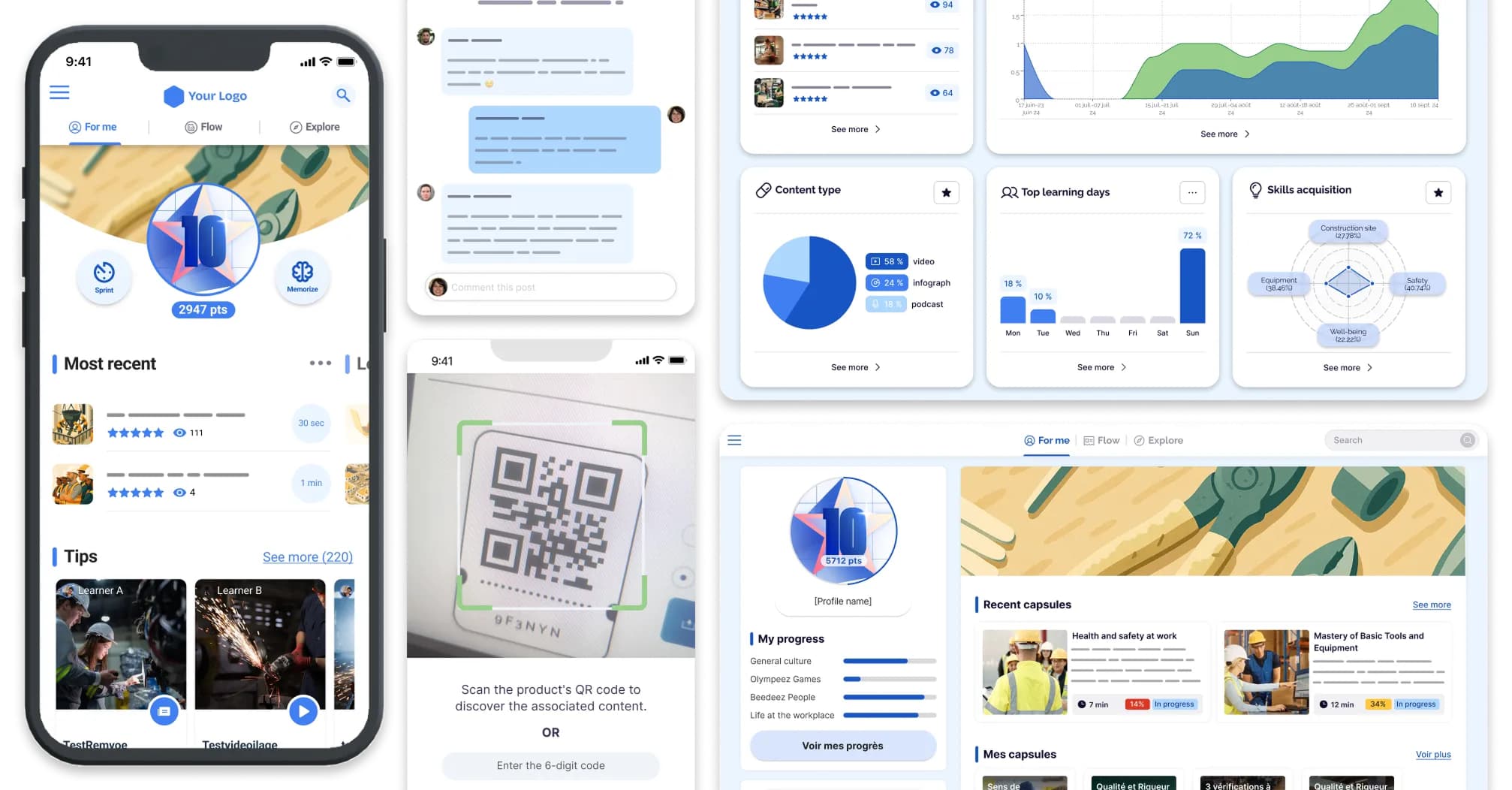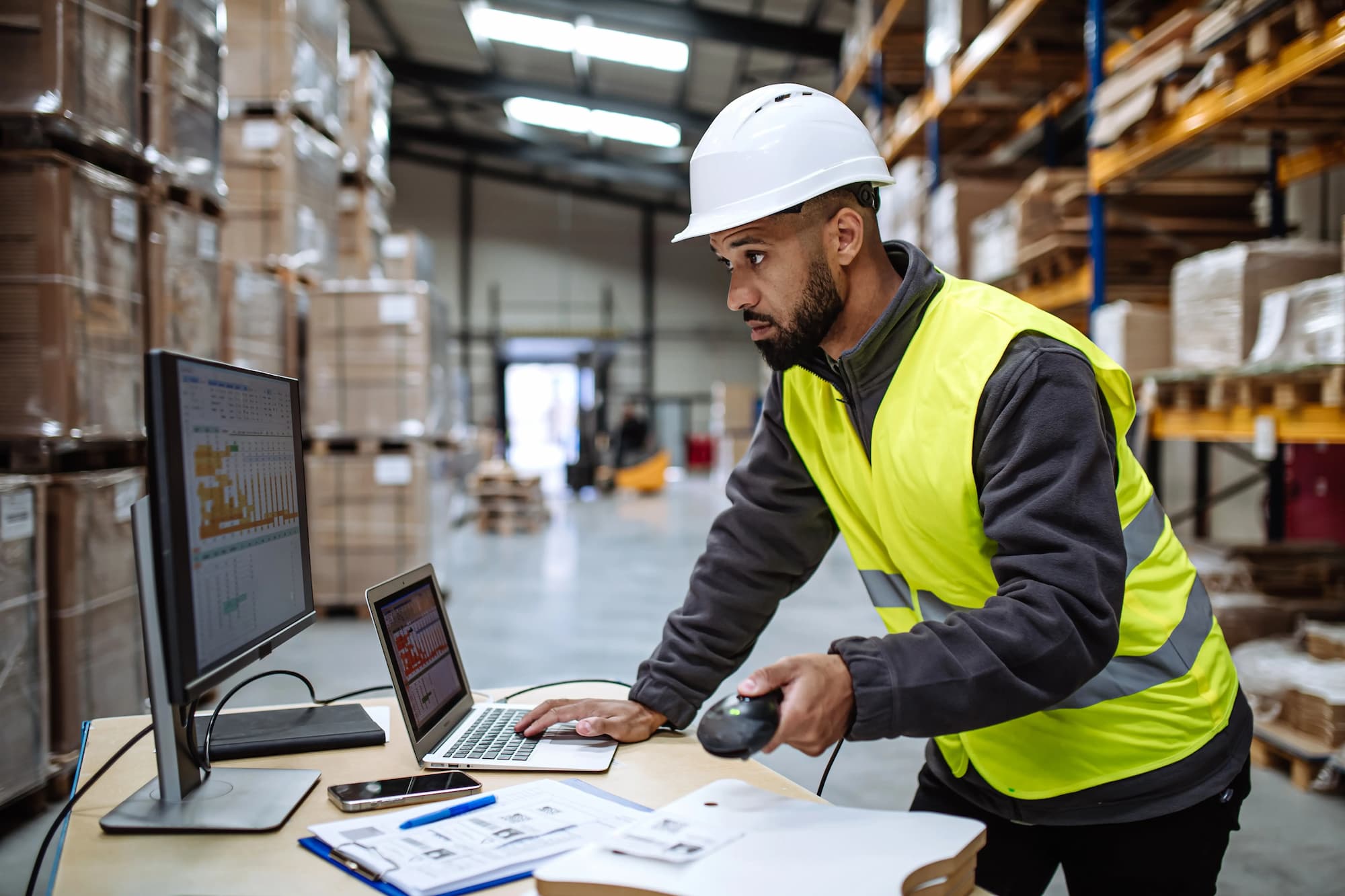The electrification of fleets and the arrival of new technologies are profoundly transforming transport jobs. To remain competitive and guarantee the safety of your operations, increasing the competence of your teams is no longer an option.
👉 One LMS well-designed becomes a real ally. It allows you to quickly and effectively train your employees in the specificities of electric vehicles, while adapting the courses to the real needs of each profession..
👍 Result: a team that is always up to date, responsive and fully operational in the face of technological and regulatory developments.
Decryption
A well-deployed LMS becomes a real lever to support changes in the transport sector, in particular in the face of challenges related to electric vehicles and new technologies:
Training without hampering field activity
Teams access modules at any time, from any device. The result: a continuous increase in skills, without impacting daily operational life.
Making technical content accessible
Engaging formats — videos, quizzes, simulations — facilitate the learning of complex concepts and reinforce the appropriation of new technologies.
Track skills in real time
The LMS allows precise monitoring of the progress, authorizations and certifications of each employee. Enough to guarantee compliance and anticipate training needs.
Update routes in one click
Content is evolving as fast as your technology. With an LMS, simple adjustment is enough to update the modules according to standards or vehicle models.
Adapt each career path to the position held
Technician, driver, supervisor: everyone follows a path designed for their responsibilities, their field constraints and their learning pace.
Why train your teams effectively in new technologies and electric vehicles?
Transport is undergoing a profound transformation. Electric vehicles, smart charging systems, assisted driving, digital maintenance: innovations are multiplying.
Training your employees in these changes is not an option, it means giving yourself the means to respond to many challenges:
- Rapid evolutions : Technologies related to vehicle electrification are changing rapidly. Without regular updates, skills become obsolete.
- Specialized skills : Electromobility requires in-depth knowledge of high-voltage systems, electronic components, embedded software... These skills are key to guaranteeing the safety of users and the effectiveness of technical interventions.
- Economic challenge : Poor technological mastery can lead to costly errors, increased customer returns or even longer intervention times.
- Competitive advantage : The companies that are most reactive to these changes are getting a head start, especially in public procurement or in tenders related to the energy transition.
ZOOM - European regulatory developments:
The European Union plans to reduce CO2 emissions by 55% by 2030, with targets for the sale of electric cars representing 100% of new vehicles by 2035.
→ This regulatory pressure is pushing businesses to comply quickly. According to a report by the European Commission, 71% of drivers and technicians surveyed believe that training in electric vehicle technologies is insufficient in companies, which exposes to risks of non-compliance.
What specific benefits does an LMS provide for these courses?
The LMS is a concrete, flexible and scalable solution for continuous training, even on subjects as complex as technological innovations.
🧩 Centralization of resources : A single space to access up-to-date content, technical guides, feedback, video modules...
🌍 Land accessibility : Your employees can be trained wherever they are, on a computer, tablet or smartphone, even in a mobile situation.
🔄 Maximum reactivity : Is a new regulation coming into force? A module is updated and available immediately for your teams.
👤 Personalized training : The LMS adapts to each profile: driver, maintenance technician, fleet manager... Everyone follows a relevant path.
📊 Full traceability : You monitor completion rates, test results, certificates issued... An asset in case of audit or quality control.
ZOOM - the importance of training
According to a survey by the International Transport Forum, 59% of companies in the transport sector say they have difficulty recruiting qualified talent in the field of electric vehicles.
→ In addition, the cost of a technical error can be significant: A failure in the maintenance of an electric vehicle can lead to repairs that can exceed €5,000 for problems with the battery or the electronic management system
What are the key functionalities of an LMS to optimize training in innovative technologies?
The effectiveness of training also depends on the tools made available. A good LMS to support the technological transition in transport must offer:
🎥 Interactive modules : Fault simulations, tutorial videos, augmented reality to virtually manipulate an electrical component...
🧭 Targeted courses : Mandatory for authorized technicians, specific for logistics managers or even adapted for maintenance agents.
❓ Regular evaluations : Gamified quizzes, case studies, practice tests. The aim? Verify achievements, adjust content and reinforce memory.
🤝 A collaborative space : Forums, feedback, peer-to-peer messaging. Encouraging exchange and collective intelligence is a real learning tool.
🔁 A continuous update of the contents : Thanks to a simple administration interface, you can easily adjust the content according to the evolution of equipment or regulatory obligations.
ZOOM: Economic and competitive impact
According to a study conducted by Deloitte, 48% of transport companies said that the adoption of electrical technologies had led to fuel savings of up to 40%.
→ However, those who don't have not invested in this transition may end up facing higher operational costs, particularly as a result of fluctuations in fuel prices and fines related to non-compliance with environmental standards.
Four examples of companies training their teams in electric vehicles
Geodis
Geodis trains its 3,000 technicians to maintain electric vehicles via an LMS updated in real time. Result: reduction of 25% maintenance time in 2023. ⚡🔧
Keolis
Keolis trains its 15,000 drivers in electric vehicle safety rules. 92% of drivers report better risk management thanks to interactive modules. 🚍🔋
SNCF Fret
SNCF Fret combines face-to-face and LMS to train its teams in new engines. 94% success rate of authorizations and reduction of 30% delays due to failures. 🚂⚙️
La Poste
La Poste trains 10,000 agents in driving and maintaining electric vehicles with a hybrid LMS. Results: 20% reduction of incidents and downtime. 📦🚚
FAQS
Why is an LMS more suitable than traditional training?
The LMS offers increased responsiveness and flexibility, allowing continuous and personalized monitoring of skills development. Unlike traditional courses, it adapts quickly to technological developments.
My teams are often on the go: how can they be trained?
A well-designed LMS is accessible on mobile and tablet. Your employees can thus follow their training independently, regardless of their location, without interrupting their activity.
What types of content are the most effective for complex technologies?
Visual and interactive formats, such as how-to videos, practical modules, and quizzes, are ideal for simplifying technical concepts and reinforcing learning.
How can I ensure that my teams are properly trained?
The LMS generates certificates of achievement, detailed reports, and accurate statistics. This allows you to prove compliance and be ready for audits or quality checks.
Can the LMS help reduce turnover in my teams?
Yes, by offering adapted training courses and promoting continuous learning, the LMS improves employee engagement, which reduces turnover and promotes talent retention.




